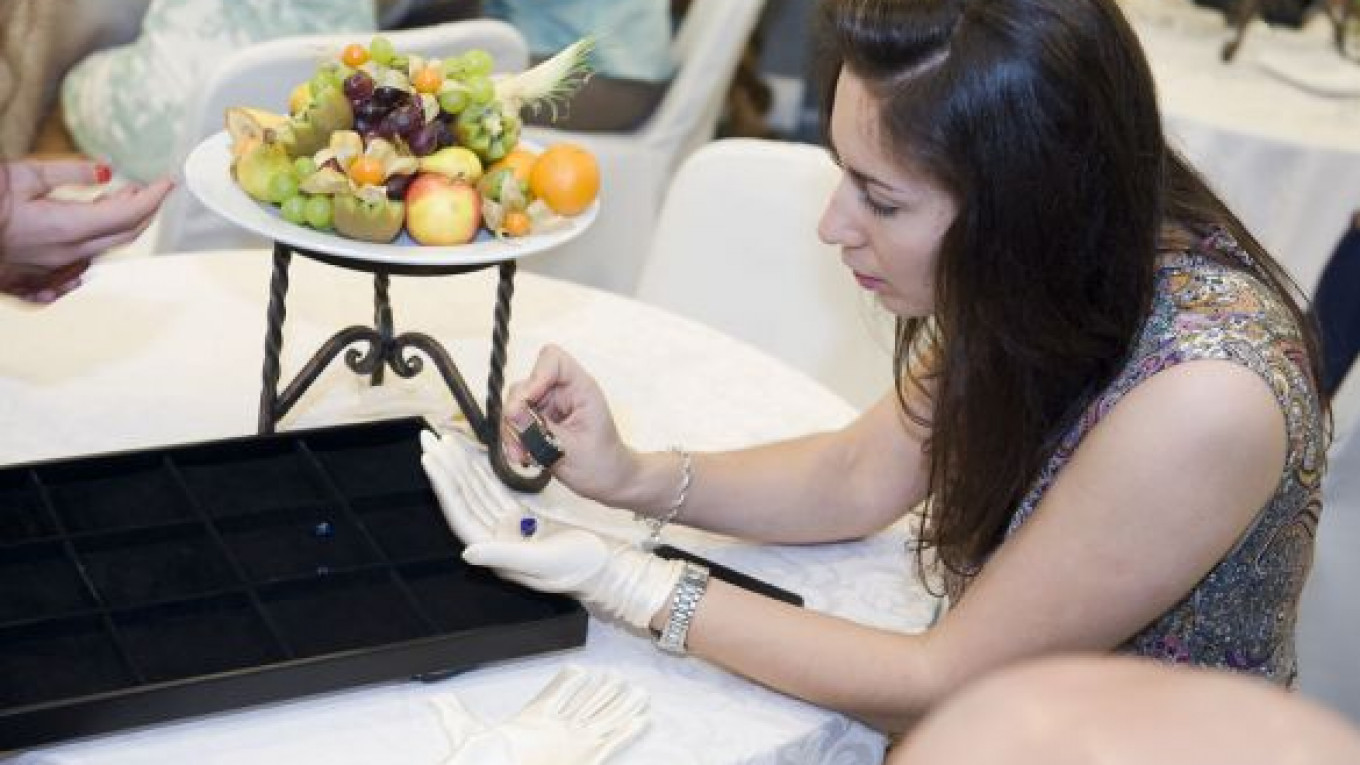At least half of the items in circulation on Russia's antiques market are counterfeits, which cost scammed collectors millions of rubles every year, according to antiques experts and law enforcement agencies.
Dishonest dealers and a lack of quality experts are the core of the problem, and solving it will have to go hand-in-hand with a change in mentality among merchants and buyers, experts said.
It is hard to track whether the number of fakes is growing or increasing every year because people still have a negative attitude toward the police and hesitant to report any incidents, said Lieutenant Colonel Alexei Kistochkin whose beat is the antiques market, which is estimated to be worth about $200 million in annual sales.
One thing is sure, he added: There are a lot of fakes in every antiques segment.
"Though all of Europe is buying and selling them, there were not that many [Ivan] Aivazovsky paintings ever made," Kistochkin said. "Even if the master's students were involved, their hands would have shriveled up if they tried to draw so many paintings."
About 2 million people in Russia collect antiques in some way, according to estimates by the Eastern European Antique House.
While the popularity of collecting has grown, experts said there was still no system for controlling counterfeits or punishing those responsible for making them.
Most antique dealers have a short sighted buy-and-sell mentality that shows no respect for the items or their clients, said Sergei Yunin, a major shareholder in the First Republican Bank and founder of the Eastern European Antique House.
"Dealers have the primitive psychology of Soviet-era profiteers," Yunin said, adding that all of the dealers he has met in his life were in some way dishonest.
Antiques evaluators often facilitate sales of counterfeits. It is hard to find competent — and most importantly, honest — antique experts that give accurate assessments of the item's value, said Vladimir Kazakov, general director of the National Institute of Independent Expertise.
Many of the current experts come from state structures, are aging and find it hard to resist the temptation of bribes, Kistochkin said. The situation is so bad that some of them are virtually on salary from dishonest dealers.
Despite the well-known problems in this market segment, the perpetrators of counterfeits easily escape punishment. The law states the consequences for stealing antiques is up to 15 years in jail,
depending on the item. But there is no separate article concerning those who produce counterfeits, lawyer Vladimir Sidyakin said.
Even if the culprit is caught, it is hard to prove improper intent. The person could merely say that he painted a reproduction of a famous painting for his friends, Kistochkin said.
The Antique House plans to help control the number of fakes on the market by offering collectors an evaluation of items they are interested in through a panel of three independent experts with access to a top notch technical laboratory. However, since there will be more experts involved, the service will cost 40 to 50 percent more than similar services currently on the market, such at the expertise offered by the Historical Museum's Society of Friends.
Contact the author at e.smirnova@imedia.ru
A Message from The Moscow Times:
Dear readers,
We are facing unprecedented challenges. Russia's Prosecutor General's Office has designated The Moscow Times as an "undesirable" organization, criminalizing our work and putting our staff at risk of prosecution. This follows our earlier unjust labeling as a "foreign agent."
These actions are direct attempts to silence independent journalism in Russia. The authorities claim our work "discredits the decisions of the Russian leadership." We see things differently: we strive to provide accurate, unbiased reporting on Russia.
We, the journalists of The Moscow Times, refuse to be silenced. But to continue our work, we need your help.
Your support, no matter how small, makes a world of difference. If you can, please support us monthly starting from just $2. It's quick to set up, and every contribution makes a significant impact.
By supporting The Moscow Times, you're defending open, independent journalism in the face of repression. Thank you for standing with us.
Remind me later.






